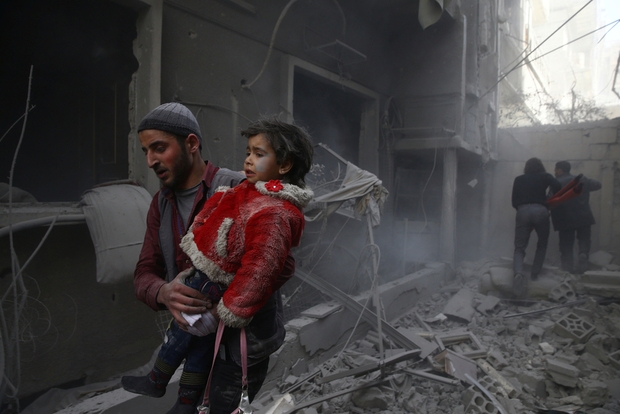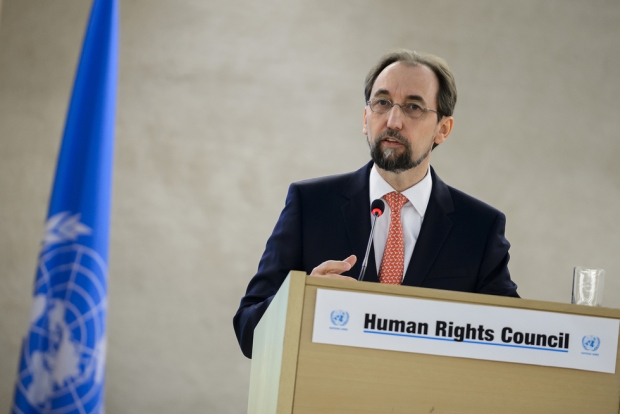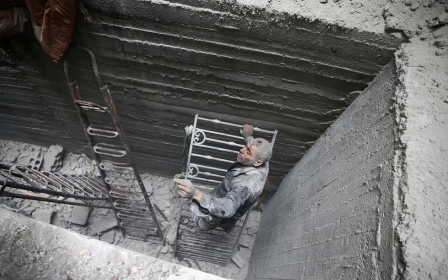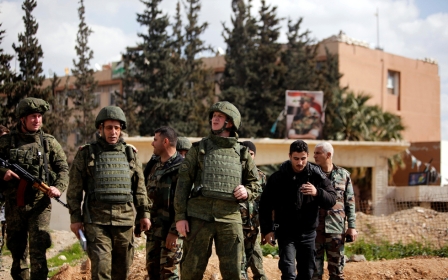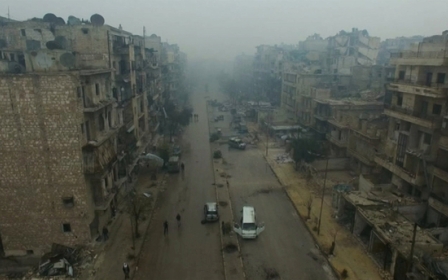War crimes likely committed in Eastern Ghouta, says UN
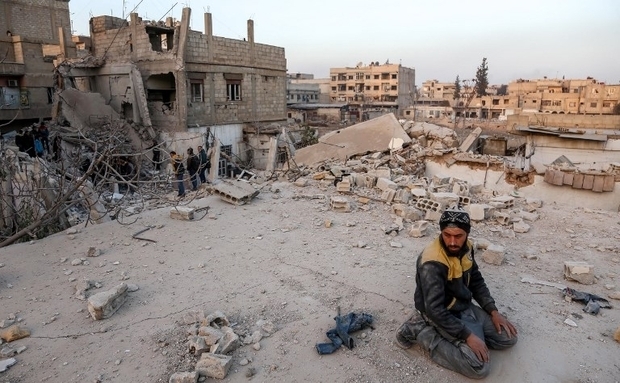
Attacks on civilians in Eastern Ghouta and elsewhere in Syria probably constitute war crimes and must be prosecuted, the top UN human rights official said on Friday.
Zeid Ra'ad al-Hussein, United Nations High Commissioner for Human Rights, said "civilians are being pounded into submission or death" and that evidence was being collated to bring those responsible to justice.
"The perpetrators of these crimes must know they are being identified; that dossiers are being built up with a view to their prosecution; and that they will be held accountable for what they have done."
Government air strikes and bombardment have killed hundreds of people over 12 days in eastern Ghouta, an area of besieged towns and farms in the last major rebel-held region near the capital.
The UN Security Council called on 24 February for a 30-day ceasefire in the area, where 400,000 people live.
"Despite this rare example of unanimity, civilians in Eastern Ghouta have reported that air strikes and shelling continue," Zeid told Geneva-based Human Rights Council during an urgent debate held at Britain's request.
"Once again, I must emphasise that what we are seeing, in eastern Ghouta and elsewhere in Syria, are likely war crimes, and potentially crimes against humanity.”
Zeid called for Syria to be referred to the International Criminal Court, adding: "Attempts to thwart justice and shield these criminals are disgraceful."
Australia on Saturday used its first session as a member of the Human Rights Council to condemn "indiscriminate and disproportionate" attacks on civilians by the Syrian regime.
Syria's ally Russia has blocked previous efforts in the UN Security Council to refer the situation to the ICC.
World leaders have called for Bashar al-Assad to be "held accountable" for violence in the Damascus suburb of Eastern Ghouta, as the World Health Organisation warned that dozens of people were in immediate need of evacuation from the besieged region.
US President Donald Trump and German Chancellor Angela Merkel in a phone call also said they "urge Russia to end its involvement in the bombing of Eastern Ghouta and to persuade the Assad regime to stop its offensive operations against civilian areas," according to a chancellery statement.
Hussam Aala, Syria's ambassador in Geneva, said that Zeid was "selective and biased" and that the debate was "politicised".
The Syrian army had taken every step to protect civilians and had opened "humanitarian corridors for the passage of civilians to separate them from the terrorists," he said, referring to the insurgents in eastern Ghouta.
British Ambassador Julian Braithwaite said that the enclave had become "the epicentre" of suffering, with starving families hiding in basements from "indiscriminate regime bombing".
Britain presented a resolution condemning all violations and calling on U.N. war crimes investigators to carry out an inquiry into events in Ghouta and report back in June.
But the Council ran out of time to vote on the text, to which Russia presented amendments, so it will vote on Monday.
"We propose condemning all terrorist acts in Syria including in eastern Ghouta," a Russian diplomat told the talks. "In the last week of February the terrorists fired more than 200 shells on residential areas of the Syrian capital. There were victims including women and children."
Syrian government forces aim to advance into eastern Ghouta one "bite" at a time, a pro-government commander said on Friday, as a war monitor said the army had seized new ground from rebels.
Middle East Eye propose une couverture et une analyse indépendantes et incomparables du Moyen-Orient, de l’Afrique du Nord et d’autres régions du monde. Pour en savoir plus sur la reprise de ce contenu et les frais qui s’appliquent, veuillez remplir ce formulaire [en anglais]. Pour en savoir plus sur MEE, cliquez ici [en anglais].


